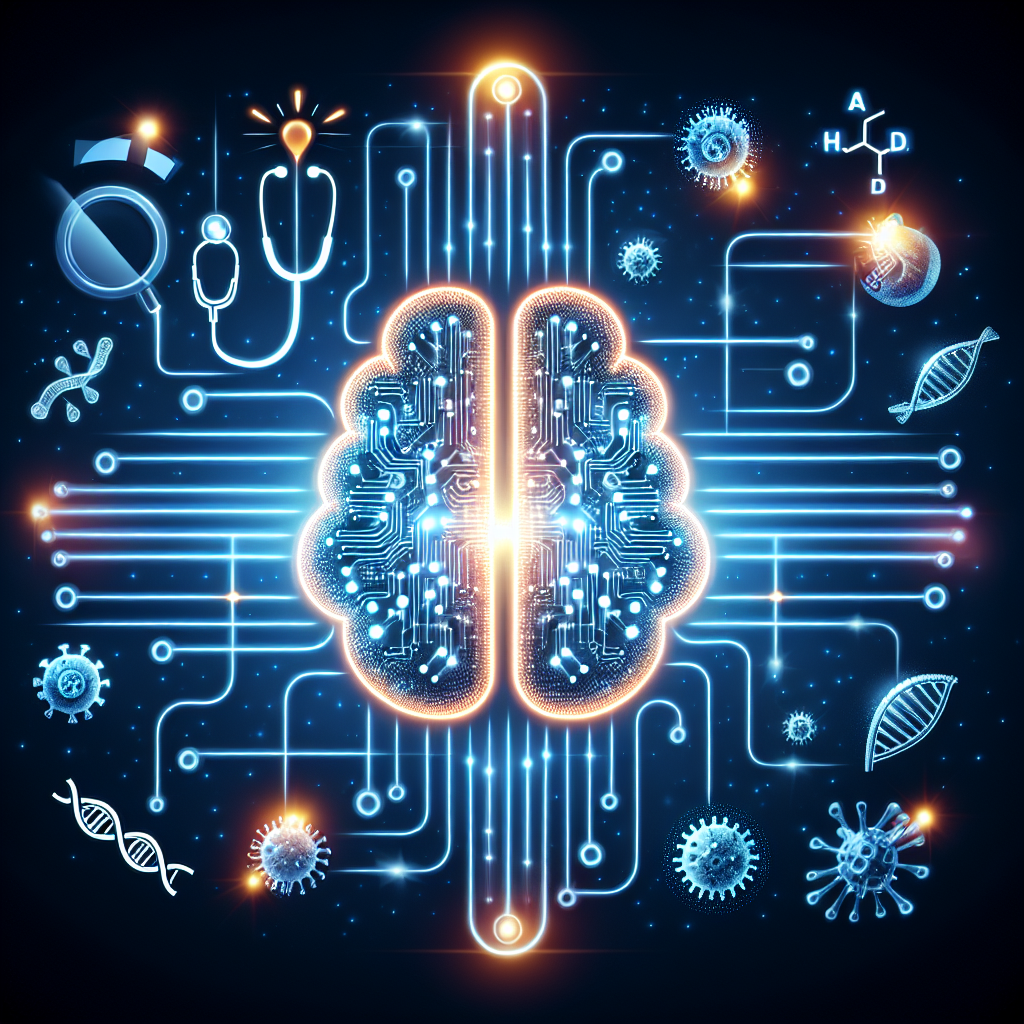Artificial Intelligence (AI) has the potential to revolutionize the way we prevent and treat diseases. By leveraging the power of machine learning and data analytics, AI can help healthcare professionals make more informed decisions, predict and prevent outbreaks, and personalize treatment plans for patients. In this article, we will explore the ways in which AI can be used to prevent diseases and improve public health outcomes.
AI in Disease Prevention
One of the key areas where AI can make a significant impact is in disease prevention. By analyzing vast amounts of data from sources such as electronic health records, medical imaging, and genetic testing, AI can help identify patterns and risk factors for various diseases. This can enable healthcare providers to intervene early and prevent the progression of diseases before they become more serious.
For example, AI algorithms can analyze a patient’s medical history and genetic profile to identify individuals at higher risk for developing conditions such as diabetes, heart disease, or cancer. By identifying these high-risk individuals, healthcare providers can recommend lifestyle changes, preventative screenings, or other interventions to reduce their risk of developing the disease.
AI can also be used to predict and prevent disease outbreaks. By analyzing data from sources such as social media, online search trends, and disease surveillance systems, AI algorithms can detect patterns and signals that indicate the emergence of an outbreak. This early warning system can help public health officials take proactive measures to contain the spread of the disease and protect the health of the population.
Personalized Medicine
Another area where AI can make a significant impact is in personalized medicine. By analyzing a patient’s genetic profile, lifestyle factors, and other health data, AI algorithms can help healthcare providers tailor treatment plans to the individual needs of each patient. This can lead to more effective treatments, reduced side effects, and better outcomes for patients.
For example, AI algorithms can analyze a patient’s genetic profile to predict how they will respond to a particular medication. This information can help healthcare providers choose the most effective treatment for each patient, reducing the trial-and-error approach that is often used in medicine. By personalizing treatment plans in this way, AI can improve the effectiveness of treatments and reduce the risk of adverse reactions.
Challenges and Limitations
While AI holds great promise for disease prevention and personalized medicine, there are also challenges and limitations that need to be addressed. One of the key challenges is the need for large amounts of high-quality data to train AI algorithms. Without access to robust data sets, AI algorithms may not be able to accurately predict outcomes or identify risk factors for diseases.
Another challenge is the need to ensure the privacy and security of patient data. As AI algorithms analyze sensitive health information, it is important to have robust data protection measures in place to prevent data breaches or unauthorized access. Healthcare providers must also ensure that patients are informed about how their data will be used and have the opportunity to consent to its use for research purposes.
Furthermore, there are limitations to the accuracy and reliability of AI algorithms. While AI can analyze vast amounts of data and identify patterns that may not be apparent to human observers, there is still a risk of false positives or false negatives. Healthcare providers must therefore use AI as a tool to inform their decision-making, rather than relying solely on AI algorithms to make clinical decisions.
FAQs
Q: How can AI help prevent diseases?
A: AI can help prevent diseases by analyzing data from sources such as electronic health records, medical imaging, and genetic testing to identify patterns and risk factors for various diseases. This information can help healthcare providers intervene early and recommend preventative measures to reduce the risk of disease.
Q: Can AI predict disease outbreaks?
A: Yes, AI algorithms can analyze data from sources such as social media, online search trends, and disease surveillance systems to detect patterns and signals that indicate the emergence of an outbreak. This early warning system can help public health officials take proactive measures to contain the spread of the disease.
Q: How can AI personalize treatment plans for patients?
A: AI algorithms can analyze a patient’s genetic profile, lifestyle factors, and other health data to tailor treatment plans to the individual needs of each patient. This can lead to more effective treatments, reduced side effects, and better outcomes for patients.
In conclusion, AI has the potential to revolutionize the way we prevent and treat diseases by analyzing vast amounts of data, predicting and preventing outbreaks, and personalizing treatment plans for patients. While there are challenges and limitations to be addressed, the promise of AI in healthcare is clear. By leveraging the power of AI, we can improve public health outcomes and provide better care for patients around the world.

